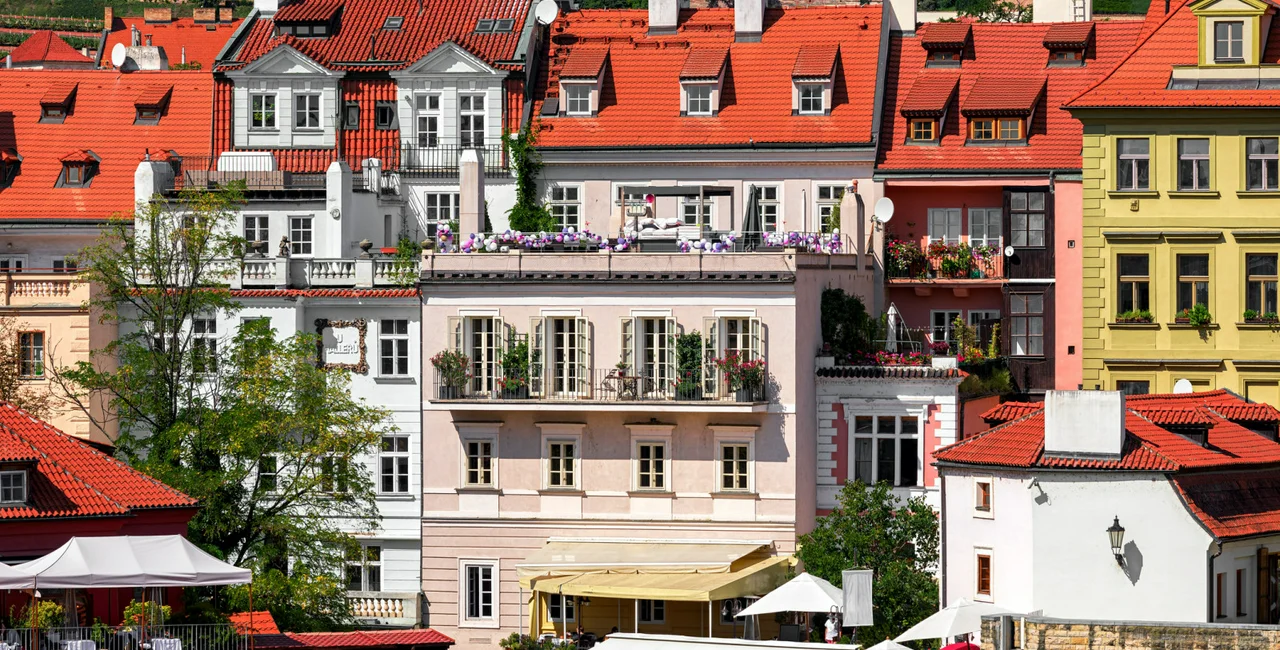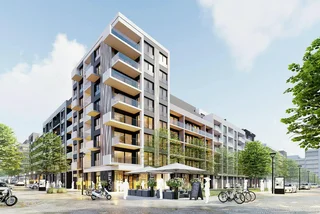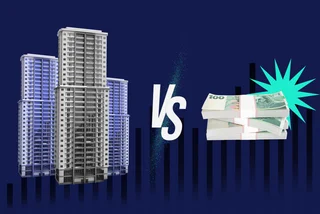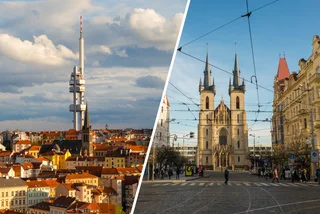According to newly released research by UBS Global Wealth Management (GWM), there’s a chance the residential market in Prague will slow down this year, though UBS analysts expect positive price growth to return later on – just at a slower pace than before.
While the attractiveness of the real estate market in Central and Eastern Europe will not be impacted in the long-term, UBS says a 2020 recession can bring some changes.
PARTNER ARTICLE
Here are some expert predictions on what the future might bring for the country’s real estate market due to COVID-19:
Property prices might fall (for a while)
Property sales are down at the moment in Prague, but this is perhaps no surprise given the lockdown. In fact, most real estate sales contracts signed in the past two months have been for properties already in the process of selling back in February 2020, according to Daniel Kotula, who owns real estate agency KOTULA and consults on real estate investments.
With barely any new movement happening in the past two months, Kotula says he expects prices to fall. “This usually takes place during a period of economic downturn, when unemployment grows and the financial prospects of companies are weak,” says Kotula.
Furthermore, he says, “The depth and duration of the economic recession will determine the depth of the price fall –my estimate is that it will be comparable to the financial crisis in 2008, and in the case of a second wave of the pandemic, the situation may be significantly worse.”
While prices do not have a visibly declining trend just yet, this is in part due to the situation being very fresh. “The trend will be visible in 2-3 months at the earliest and the decline will be gradual over several years,” he says.
The market will see a “correction”
If anything, though, the Czech Republic real estate market is due for a shakeup. “We are not sure right now what’s going to happen, but if anything changes, we wouldn’t call it a fall, but rather a correction,” says Robin Petrásek, expats mortgage specialist and CEO at Expats Finance.
“Last year during their annual assessment, the Czech National Bank said that property prices were about 20% higher than what the CNB expected they should be,” says Petrásek. “So perhaps the worst I would personally expect could be a correction of 20% in some areas, where property prices have been driven up due to investors who bought them for short-term rentals.”
Mortgage rules will change
Just last month, the Czech National Bank introduced changes that allow individual banks more margin and more flexibility in terms of lowering interest rates. “So far, only two banks are providing interest rates under 2 percent, while most are keeping the rates they had in January/February of this year,” says Petrásek.
The Czech National Bank has also eased other mortgage conditions, allowing banks to offer 90% loans again and removing the condition that the total loan should not exceed nine times the net yearly income of the applicant, according to Tomáš Jedlička, financial advisor and Expats.cz mortgage specialist.
While this might sound promising, banks are also taking measures to protect themselves. “For example, most banks are already limiting the approval of mortgages for those who work in the most severely hit industries, including restaurant business, pubs, and travel and culture,” explains Petrásek.
The rental market will stabilize
The rental market in Prague has been closely tied to the Airbnb market for the past few years. A 2016 survey conducted by Forbes Magazine declared Prague as the second most remunerative city to invest in apartments for Airbnb rentals –and the market has only gotten stronger since then. The result? A strong decline in available, affordable rental apartments and a surge in rental prices.
As more Airbnb rentals are now being turned into long-term rentals due to the crisis, the hope was that this will cause rental prices to go down.
But during a recent online conference held by the Association for the Development of the Property Market (ARTN), those hopes seemed to be dashed. “A visible increase in long-term rental apartments may result in a short-term fall in long-term rental prices,” said Zdenka Klapalová, president of ARTN. “However, given the acute shortage of flats, especially in Prague, there is an opinion that although there will certainly be a certain drop in demand this year, it will be more of a short-term fluctuation.”
If you’re looking to move and want a cheaper apartment, this might be the time, before prices start to recover.
Airbnb will enter a new era
According to online rental analytics firm AirDNA, bookings on Airbnb have gone down a whopping 85 percent worldwide since the pandemic started. With much of the world still in lockdown, these numbers aren’t likely to change anytime soon.
“I know many Airbnb flat owners who due to COVID-19 turned their flats to long-term rentals, others who are leaving them vacant, and some who even moved into their properties as they were renting themselves,” says Petrásek.
As a general rule, owners seem to be on standby, hoping for things to turn around soon enough for the market to survive. “I think this will depend on how long the borders will be closed,” says Jedlička. “If they open soon (within the next 2-3 months), the effect would not be as dramatic. If borders remain closed for a longer period, investors might start to sell properties due to lack of cash for maintenance and loan repayment.”
Even if Airbnb makes it out of the crisis alive, changes might are on the horizon. Officials in Prague are hoping to introduce better regulations to collect tax on short-term rentals. Mayor Zdenek Hrib hopes this will in turn help regularize Airbnb and short-term rentals to fight the lack of affordable housing, especially in the center of the city.
Many will migrate to the suburbs
Villages and towns 30-40 km from Prague have been in high demand for years, as city residents are moving out in search of more space and better prices. This year’s changes could make this an even more popular choice. “The city is not an interesting place to live in the time of social distancing,” says Kotula.
If the restrictions and quarantine measures last much longer (e.g. several years), then it is quite likely that people will change their habits and begin to feel even more the benefits of living in outlying areas, according to Kotula. “Today’s technologies will also help, especially at a time when it is not necessary to be physically present in the office for work so much anymore,” he adds.












 Reading time: 5 minutes
Reading time: 5 minutes 




























